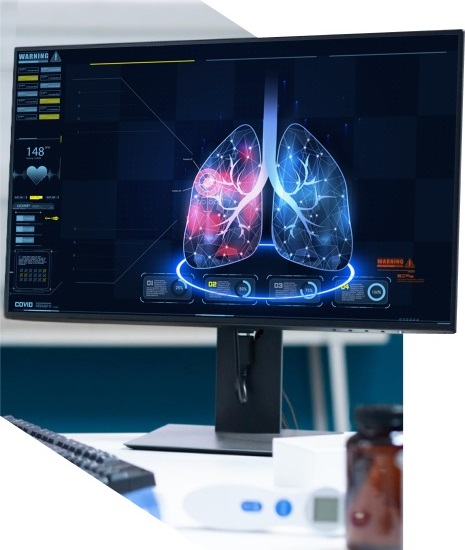Breakthrough AI Digital Biomarker Tool Rapidly Identifies Lung Fibrosis on CT Scans
Posted on 19 Jan 2024
Lung fibrosis, a critical group of diseases impacting hundreds of thousands annually, includes idiopathic pulmonary fibrosis (IPF) which is particularly known for its severity. Current treatments for IPF are not only costly but can also be harmful if administered to unsuitable patients. Typically, there's a delay of about two and a half years in diagnosing this condition following the appearance of the first symptoms. This delay is critical as severe lung damage or even death could occur within one to two years from the onset of lung fibrosis. To address this challenge, a groundbreaking digital biomarker solution uses artificial intelligence (AI) to guide safe, non-invasive diagnosis of lung fibrosis with a focus on IPF.
IMVARIA Inc.’s (Berkeley, CA, USA) Fibresolve is a software-only device that processes and interprets lung computed tomography (CT) imaging data. Its primary purpose is to aid in diagnosing ILD by offering a diagnostic subtype classification for suspected cases. Before considering more invasive diagnostic methods, data from patients with suspected ILD is run on Fibresolve which utilizes IMVARIA’s AI algorithm to analyze the data and provide valuable non-invasive adjunct information for classification. This tool aids clinicians in quickly determining an accurate diagnosis, enabling them to administer appropriate treatments sooner. Moreover, Fibresolve offers a cost-effective alternative, potentially saving thousands of dollars per test and benefiting the overall health system financially.

Fibresolve’s results are designed for use by clinicians specializing in lung disease, particularly those managing ILD patients. These results should be interpreted in conjunction with the patient's clinical history, symptoms, other diagnostic tests, and the clinician's expert judgment. The U.S. Food and Drug Administration (FDA) has granted marketing authorization for Fibresolve, making it the first FDA-approved diagnostic tool for lung fibrosis.
“Fibresolve serves as an adjunct to clinicians in assessing patients with suspected lung fibrosis to provide a diagnostic subtype classification, potentially facilitating proper treatments at an earlier stage of the disease process,” said Joshua Reicher, MD, Co-founder and CEO of IMVARIA. “The FDA’s authorization of Fibresolve marks a significant milestone, not only for lung fibrosis patients but also for the advancement of AI-based healthcare technologies.”
“For people living with the rapidly deteriorating symptoms of this rare, yet deadly disease, the FDA authorization of Fibresolve offers real hope, while giving doctors who treat these patients a new, powerful tool that is designed to save lives and reduce suffering at an exponential rate that only AI can deliver,” added Michael Muelly, MD, Co-founder and CTO of IMVARIA. “This truly is a major step forward in advancing digital healthcare through the use of AI in the hands of medical doctors.”














